Patacancha: Keeping Farming Traditions Alive
Patacancha: Keeping Farming Traditions Alive
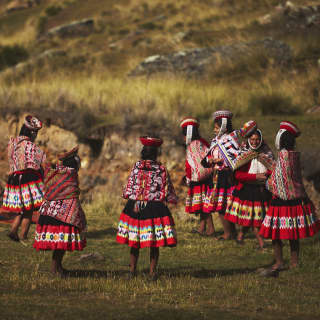
High in the Andes in Patacancha village, farming traditions have been practiced for millennia in pursuit of the perfect, tasty potato.
Peru’s Sacred Valley is a place of outstanding beauty, offering an immersive journey into the country’s colorful heritage. On a tour to the Patacancha community farm, savor unique regional flavors and indigenous ingredients, lovingly created through ageless traditions in enchanting surroundings.
When you’re climbing to around 4,600 meters above sea level, the altitude may begin to take its toll. Thankfully, your visit has been organized by Rio Sagrado, A Belmond Hotel, Sacred Valley , an idyllic oasis and the perfect location to acclimatize. This verdant haven is nestled next to the rumbling Urubamba River and lush gardens—a haven for Andean wellness and authentic culinary feasts. Perhaps you’ve already fought off any symptoms thanks to a cup of restorative coca tea; the hotel welcomes each weary traveler with a fresh brew. But if you can stand to wrench yourself away from this paradise for just a few hours, an exciting community tour is on the horizon.
Turn your gaze to the landscape as you venture up to Patacancha. There’s no better example of the ingenuity of the Inca people than their terraced agriculture, known as andenes, that still graces the slopes of the Andes today. Marvel at their squiggling lines, multicolored fields and winding paths, visited by curious llamas, alpacas and vicuñas. All too soon, you’ll have climbed past lush valleys, flowing streams and high into the skies, arriving at the site of today’s visit: a potato farm.
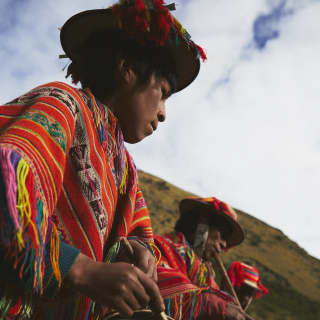
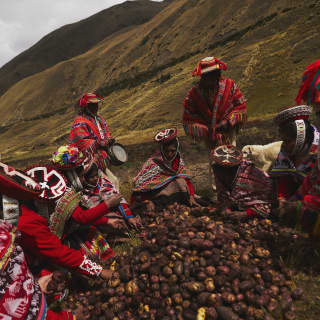
Knobbly, dappled, striped, spotted, long and thin, short and squat, bright gold, deep purple and almost black... nearly 4000 varieties of potato, or papa, are grown today in the land where the tubers were first cultivated. At this farm, the multigenerational family who live and work here are dedicated to using traditional tools and methods for cultivation, forging a meaningful connection to their land, culture, produce, and each other. They also retain the sartorial traditions of their ancestors, so prepare to be garbed in local dress as they cheerily lead you out to their fields to the soundtrack of traditional pipes.
Speaking native Quechua and translated by a guide, you will be able to see the fascinating methods used to harvest using inherited tools—but not before the ground has been blessed in the form of a tribute to Mother Earth. This time-honored ritual involves a tribute to Pachamama, the goddess who harvests the lands so that farmers can nurture prosperous produce. Normally at Patacancha, this includes holding a small parcel of natural ingredients such as coca leaves aloft, and then whispering words of thanks while fixing one’s eyes on the distant mountains.
But back to the potatoes. Not only are the number of varieties mind-boggling (this particular farm grows over 500), but the cooking methods are remarkable. Starting small fires in the hot earth, the potatoes are cooked underground in the scorching soil, taking only minutes to bake into the perfect superfood snack. Sample them with a home-made chili sauce, made by pulverizing the spices between two large stones, before sipping on more of that irresistible coca tea.
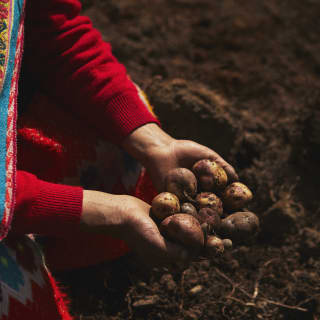
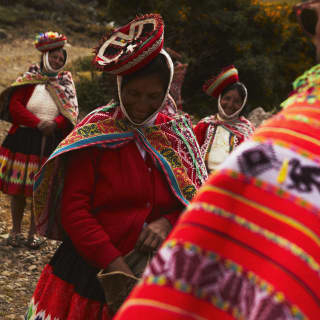
Patacancha farmers are the main provider of native potatoes to Rio Sagrado, so venturing back to the hotel for your evening meal is a true example of farm-to-table gastronomy in action. Here, you can try several Peruvian specialties made with the beloved papa. On the menu at the hotel’s flagship restaurant El Huerto, you can feast your way through dishes such as papa rellena—a meat-stuffed potato served with Peruvian chili cream; causa, a layered dish of mashed potato, chili, chicken and eggs—or perhaps alongside ají de gallina tradicional—a traditional, hearty stew.
Whichever you choose, you can rest assured that your produce isn’t just delicious—it’s sourced responsibly, supports local communities and enhances hyper-local biodiversity.
Delve deeper into
You might also enjoy

Belmond's Best Beach Villas
“I shall wear white flannel trousers and walk upon the beach,” T.S. Eliot wrote in a wistful ode to life by the sea. Surely the best way to appreciate it is from the comfort of your own villa—ideally with a cocktail in hand.
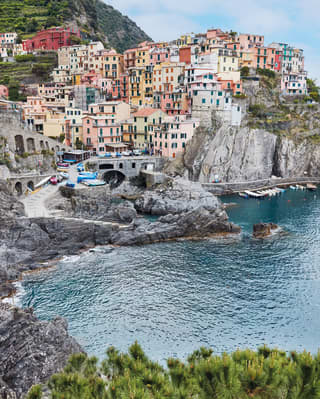
Surprises of the Cinque Terre
Once a collection of sleepy fishing villages, the staggering beauty of the Cinque Terre now brings in a wealth of visitors, making it one of Italy’s most photographic sights – and up-and-coming wine regions.
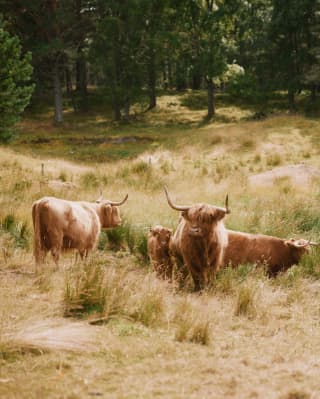
Unlock The Highlands
Departing from historic Edinburgh, journey with us to the heart of the Scottish countryside. Suitcases at the ready: these are the best places to visit in the breathtaking Highlands.
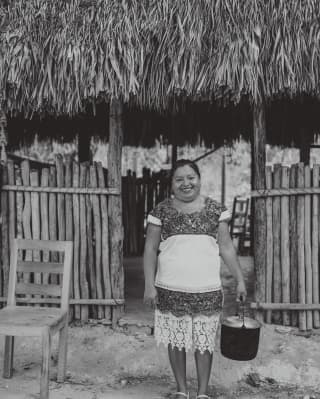
Feast of the Gods
There’s barely been a food story in the past decade that doesn’t relate in some way to Mexico’s jungle larder. On a corn-popping road trip across the Yucatan Peninsula, Javier Arredondo celebrates the mamas who are paving the way forward.

Venice Simplon-Orient-Express: Our History
The carriages that make up our train have held a distinguished role in the art of continental travel for over 100 years. With grand interiors and flowing champagne, we pioneered the most magnificent mode of transport to tour Europe and her finest cities. Now, it’s time for you to be part of our story.

The Cadogan: 200 Years of History
If walls could talk, The Cadogan’s would have more than two centuries of intriguing tales to tell. To hear all about the glamorous stories, head this way.

Into the Atelier
There’s a new level of luxury aboard the world’s most famous train. Join us as we discover how the beautiful details of the Venice Simplon-Orient-Express’ Grand Suites were created.